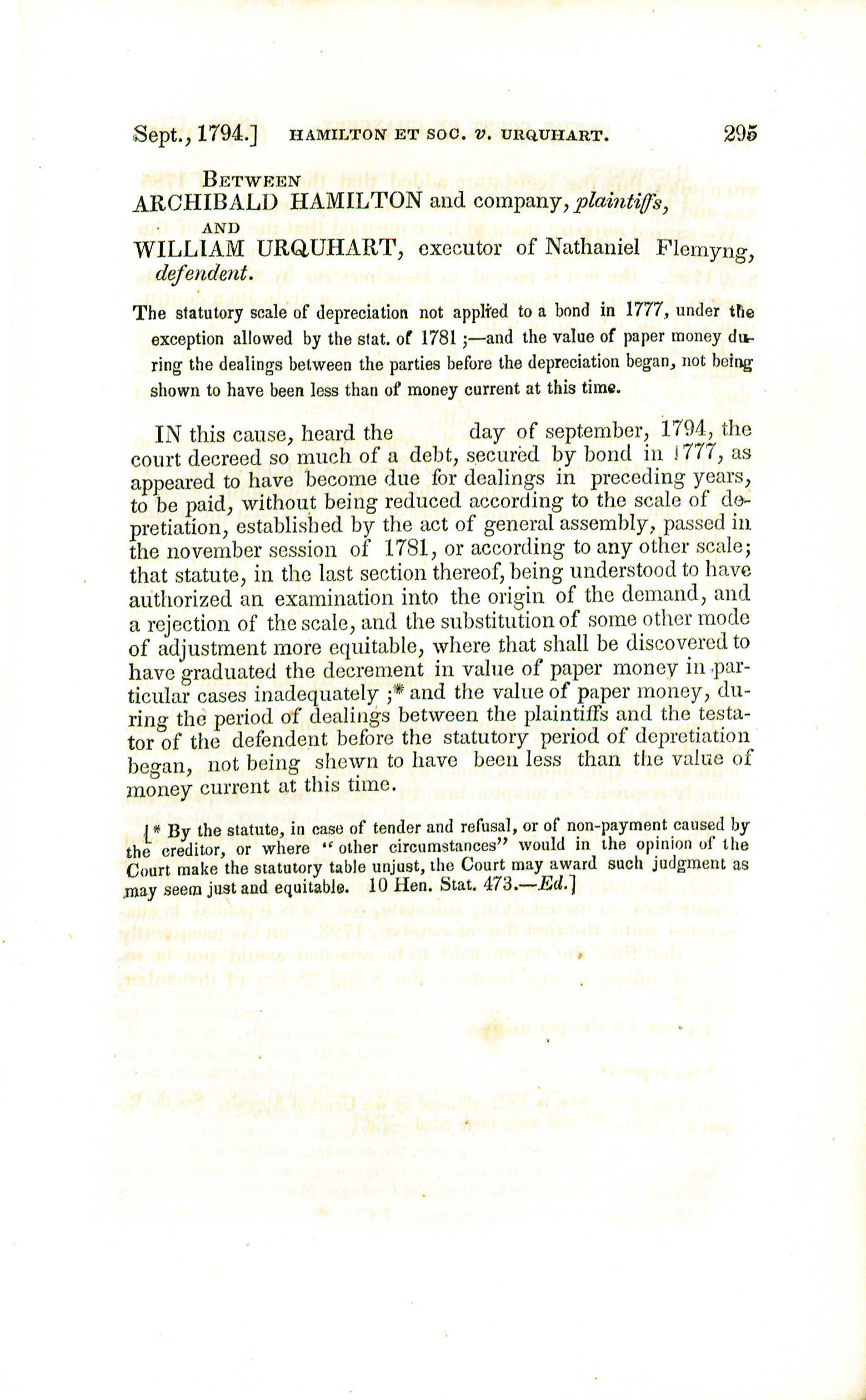Hamilton & Co. v. Urquhart

Background
Responding to the rapidly-plunging value of paper money printed there, the Virginia Assembly passed a law in 1781[2] that reduced the value of all debts incurred after 1777 and payable in paper money; the debt was devalued according to a table based on the date the debt was incurred.
Wythe does not say who the lender or borrower was in this case, but it seems a fair inference that plaintiff Archibald Hamilton & Co. was the lender; and that defendant William Urquhart (executor of Nathaniel Flemyng's estate) represented the borrower. Flemyng borrowed money from Hamilton over several years before 1777, then Flemyng signed a bond in 1777 promising to repay Hamilton. Hamilton filed a bill with the Chancery Court asking it to make Urquhart pay it the full, not devalued, value of the debt.
The Court's Decision
The Chancery Court granted Hamilton's request. Wythe noted that the Virginia law allowed courts to hand down a judgment it deemed "just and equitable" if the court determined that applying the devaluation table to the debt would be unjust.[3] Wythe determined that the value of paper money during the time Flemyng incurred the debt was not less than its present-day value, so the devaluation table did not apply.
References
- ↑ George Wythe, Decisions of Cases in Virginia by the High Court of Chancery with Remarks upon Decrees by the Court of Appeals, Reversing Some of Those Decisions, 2nd ed., ed. B.B. Minor (Richmond: J.W. Randolph, 1852), 295.
- ↑ An Act Directing the Mode of Adjusting and Settling the Payment of Certain Debts and Contracts, and for Other Purposes, Nov. 1781, in 10 The Statutes at Large; Being a Collection of All the Laws of Virginia (William Waller Hening ed., Richmond 1822), 471-74.
- ↑ Ibid., 473.